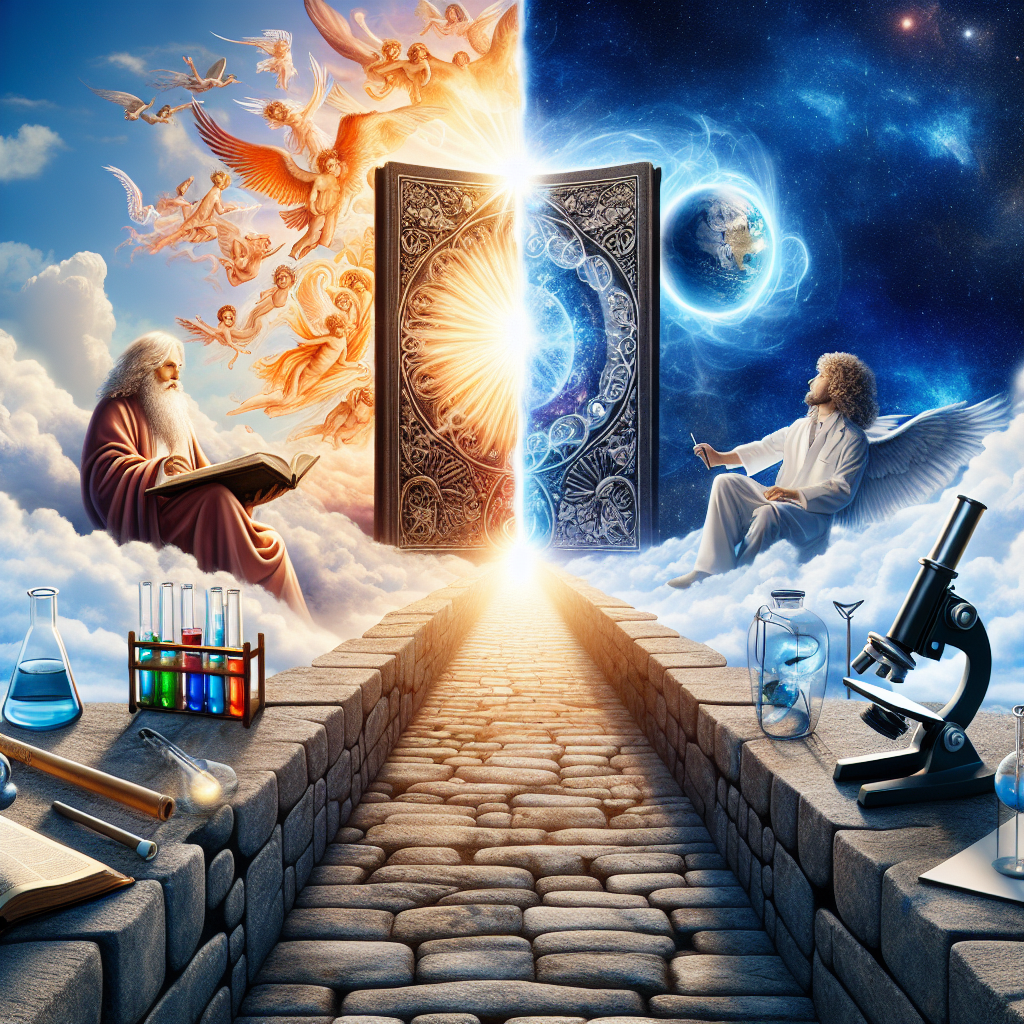Bridging the Divide: Exploring the Relationship Between Biblical Faith and Modern Scientific Discoveries
In a world often characterized by division, particularly along the lines of faith and science, there exists a rich opportunity for dialogue and integration. The interplay between biblical faith and modern scientific discoveries is not one of contradiction but rather of complementarity, offering profound insights into the nature of existence, creation, and humanity’s role within it. This article encourages an exploration of these realms, fostering a perspective that celebrates both faith and reason.
Understanding the Foundations
Biblical faith involves a commitment to a spiritual narrative that provides a sense of purpose, morality, and community. It is rooted in ancient texts that speak of creation, divine intervention, and the inherent value of human life. On the other hand, modern science is defined by questions and empirical investigations, seeking to uncover the mysteries of the universe through observation, experimentation, and analysis.
For centuries, these two realms have been viewed as opposing forces, often leading to conflict in educational, social, and personal contexts. However, a closer examination reveals that they can coexist harmoniously, each enriching our understanding of the other. The Bible, after all, was written within particular historical and cultural contexts, and its teachings can be revisited and interpreted in light of contemporary scientific insights without losing their spiritual significance.
Exploration of Creation
One of the most debated topics in the dialogue between faith and science is the origin of the universe. The biblical account of creation found in Genesis describes a purposeful creation by a divine being, while scientific theories such as the Big Bang and evolution articulate natural processes that have shaped the cosmos and life on Earth.
These narratives need not be seen as wholly incompatible. Many theologians and scientists argue that the process of creation as described in the Bible can be understood metaphorically—representing the divine intention behind the complexity of the universe. For instance, the Big Bang theory does not negate the notion of a creator but can be viewed as a mechanism through which divine creativity operates.
Moreover, the intricate laws of physics that govern our universe can inspire awe and curiosity, leading many to spiritual reflections that align with biblical principles of wonder and reverence for creation. The harmony in chaos, the beauty of the cosmos, and the complexity of life resonate with the biblical themes of order, beauty, and providential care.
The Human Experience
Faith traditions, particularly within Christianity, speak deeply to the human experience of suffering, struggle, and redemption. Science, especially in fields such as psychology and medicine, offers tools to understand, alleviate, and navigate these challenges.
Innovations in mental health treatment and an increased understanding of human behavior do not detract from biblical perspectives on compassion, empathy, and community support. Rather, they can enhance our approach to living out these principles. For instance, when a faith community engages in discussions about mental health, they bridge the gap between spiritual support and scientific understanding, creating an environment where individuals feel seen, valued, and encouraged to seek help.
Furthermore, ethical considerations stemming from scientific advancements in genetics, artificial intelligence, and environmental stewardship can be enriched by biblical teachings on stewardship, the sanctity of life, and our responsibility to one another and creation itself.
Fostering an Integrated Approach
As stewards of both faith and knowledge, we are called to cultivate a mindset that values inquiry and openness. Educators, religious leaders, and families can work together to create an environment where questions are encouraged, and exploration is seen as a path toward deeper understanding.
Initiatives that promote science education within a faith context, discussions about moral issues arising from scientific advancements, and collaborative efforts to address global challenges such as climate change and public health can forge pathways where faith and science unite to create a better world.
Educational institutions that embody this integrated approach, emphasizing both scientific literacy and spiritual formation, prepare students not only to excel academically but also to engage meaningfully with the complexities of the world around them.
Conclusion: A Shared Journey of Discovery
The relationship between biblical faith and modern scientific discoveries is one of shared inquiry, mutual respect, and profound discovery. As humanity seeks to understand its place in the cosmos and address contemporary challenges, embracing both faith and science can lead to comprehensive answers that fulfill spiritual and intellectual pursuits.
By bridging the divide, we can foster a culture that celebrates curiosity, encourages sustainable living, and inspires collective action rooted in both spiritual and empirical understanding. This positive synthesis of faith and reason is not just possible; it is essential for a future where both can flourish, leading us to profound insights and a renewed sense of hope.
Explore and dig up answers yourself with our BGodInspired Bible Tools! Be careful – each interaction is like a new treasure hunt… you can get lost for hours 🙂


